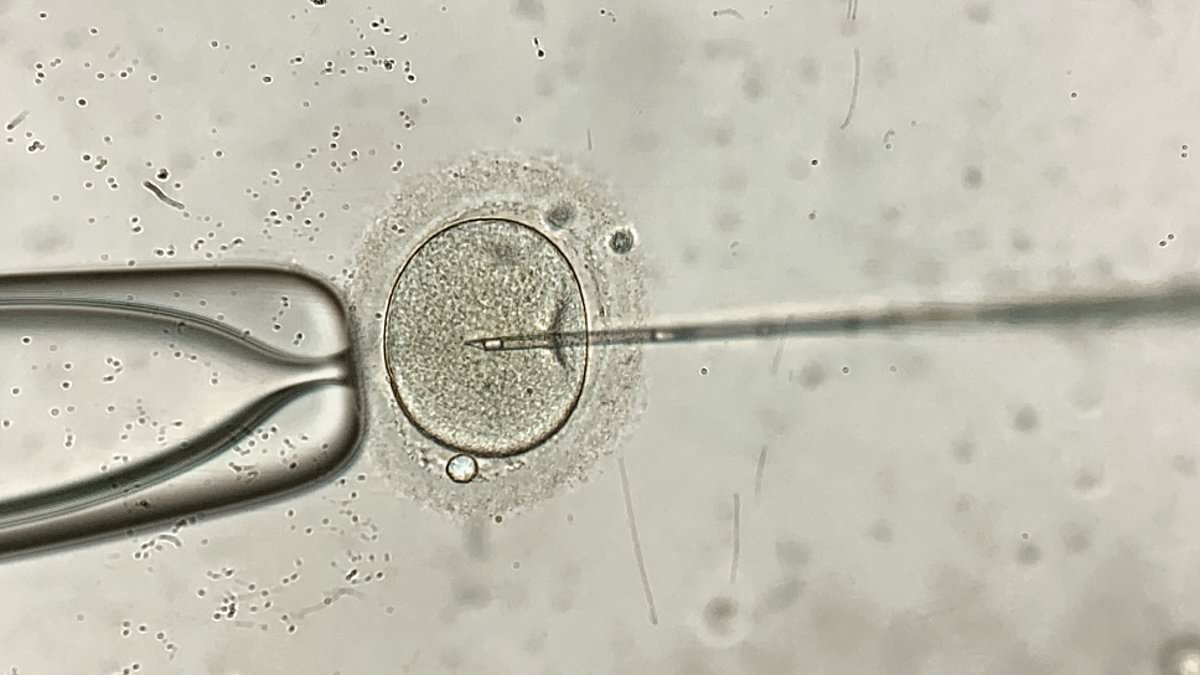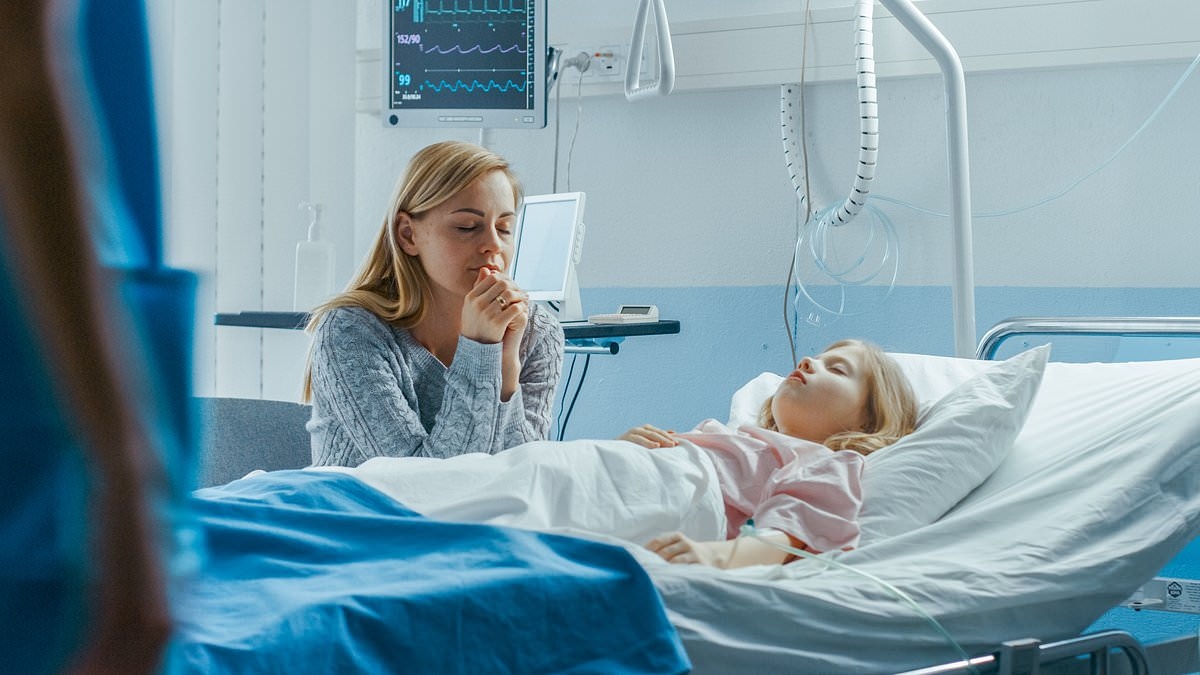Warning over delaying parenthood as study finds donor eggs drive most IVF successes for women aged 43

Published: | Updated:
Donor eggs drive most IVF successes for women over the age of 43, a major UK study reveals.
Analysis of more than half a million patients in the UK highlights the crucial role of donor eggs for older mums.
It shows how there has been 'little improvement' in success rates for older women using their own eggs for IVF in nearly 30 years, the researchers said.
And it comes at a time when many women are choosing to delay motherhood due to career opportunities, the cost of living or prioritising more personal fulfilment before starting a family.
Researchers from the London School of Economics and Political Science and the University of Vienna analysed data on assisted reproductive technologies between 1991 and 2018.
They found the number of people beginning fertility treatments each year increased from around 6,000 in 1991 to nearly 25,000 by 2018.
Over the same period overall success rates nearly doubled, rising from 14.7 per cent to 28.3 per cent.
However, both maternal age and egg source consistently remained key factors in determining success rates.
There has been 'little improvement' in IVF success rates for women over the age of 43 using their own eggs, the study revealed (stock image)
Among those aged 43 and above, success rates remain below 5 per cent when using their own eggs.
But more than a third of treatments using donor eggs are now successful across all age groups, the study, published in the journal Population Studies, found.
'For women over 43, treatments using their own eggs are rarely successful,' study author Luzia Bruckamp said.
'Donor eggs often remain the only reliable option for achieving a successful pregnancy at older ages.'
The researchers warned that many people may not be fully aware of the implications of postponing motherhood.
'While assisted reproduction can help many to achieve their desired family size, it cannot completely counteract the effects of maternal age,' co author Dr Ester Lazzari added.
'These findings carry an important message not just for the UK, but for societies worldwide, where delayed childbearing is becoming more common.'
The team are calling for clearer public health communication about the realistic success rates of IVF at different ages – and the likelihood that older women may need to use donor eggs or consider freezing their own eggs earlier in life.
The team are calling for clearer public health communication about the realistic success rates of IVF at different ages (file image)
According to a recent report by the UK's Human Fertilisation and Embryo Authority, births using a donated egg or embryo have increased more than fourfold from 320 in 1995 to around 1,300 in 2019.
As maternal age at first birth continues to increase, the demand for donor eggs is likely to continue growing – making it important to understand the contribution of these treatments to overall fertility trends, the authors said.
Previous studies have indicated that there is a decline in female fertility starting in the early 30s, with a more significant drop after the age of 35 and a dramatic decrease after 40.
This is due to a decrease in both the quantity and quality of eggs that a woman has left. Women are most fertile in their teens and early 20s.
In-vitro fertilisation, known as IVF, is a medical procedure in which a woman has an already-fertilised egg inserted into her womb to become pregnant.
It is used when couples are unable to conceive naturally, and a sperm and egg are removed from their bodies and combined in a laboratory before the embryo is inserted into the woman.
Once the embryo is in the womb, the pregnancy should continue as normal.
The procedure can be done using eggs and sperm from a couple or those from donors.
Guidelines from the National Institute for Health and Care Excellence (NICE) recommends that IVF should be offered on the NHS to women under 43 who have been trying to conceive through regular unprotected sex for two years.
People can also pay for IVF privately, which costs an average of £3,348 for a single cycle, according to figures published in January 2018, and there is no guarantee of success.
The NHS says success rates for women under 35 are about 29 per cent, with the chance of a successful cycle reducing as they age.
Around eight million babies are thought to have been born due to IVF since the first ever case, British woman Louise Brown, was born in 1978.
Chances of success
The success rate of IVF depends on the age of the woman undergoing treatment, as well as the cause of the infertility (if it's known).
Younger women are more likely to have a successful pregnancy.
IVF isn't usually recommended for women over the age of 42 because the chances of a successful pregnancy are thought to be too low.
Between 2014 and 2016 the percentage of IVF treatments that resulted in a live birth was:
29 per cent for women under 35
23 per cent for women aged 35 to 37
15 per cent for women aged 38 to 39
9 per cent for women aged 40 to 42
3 per cent for women aged 43 to 44
2 per cent for women aged over 44
Daily Mail





